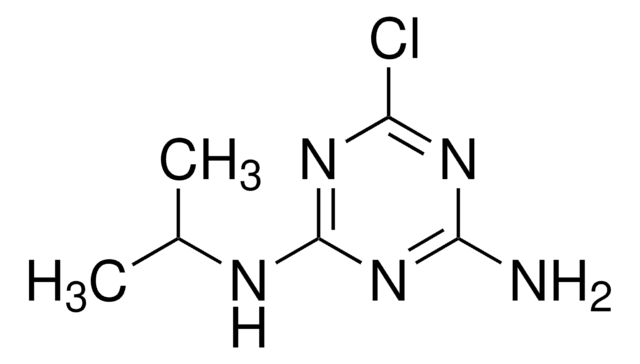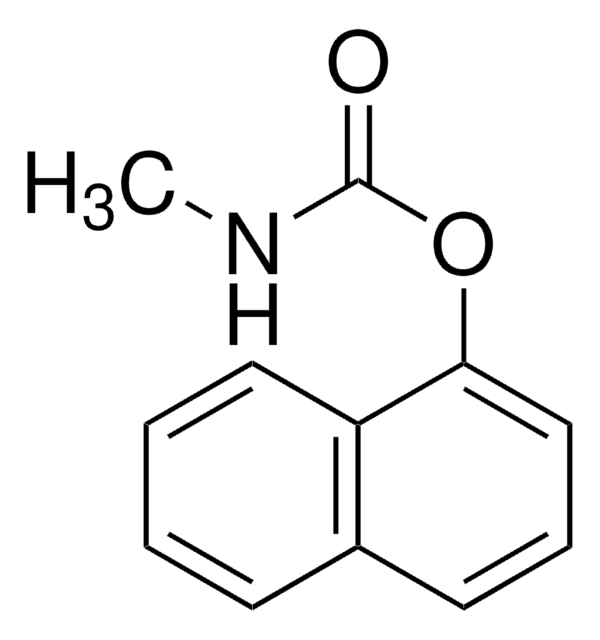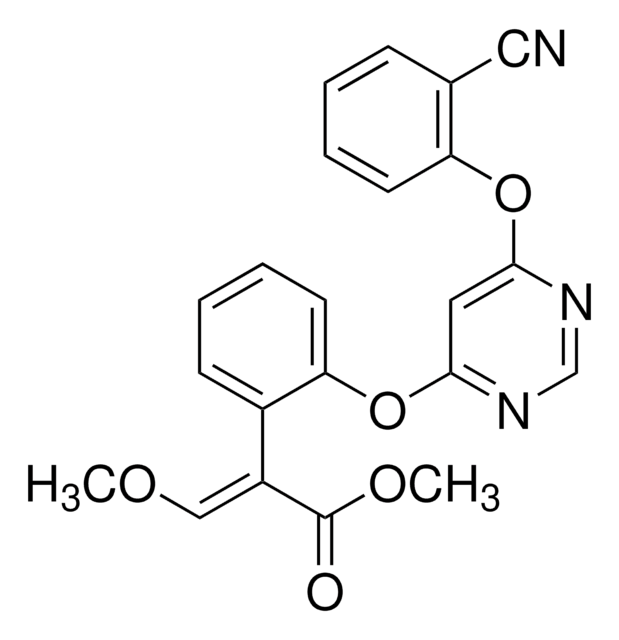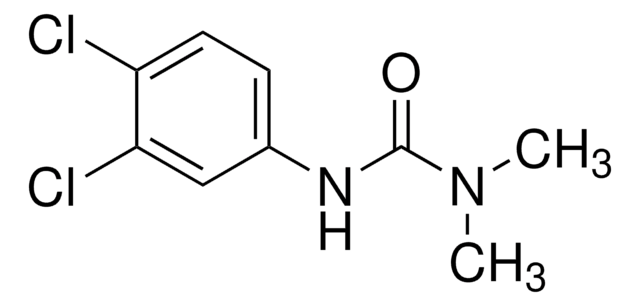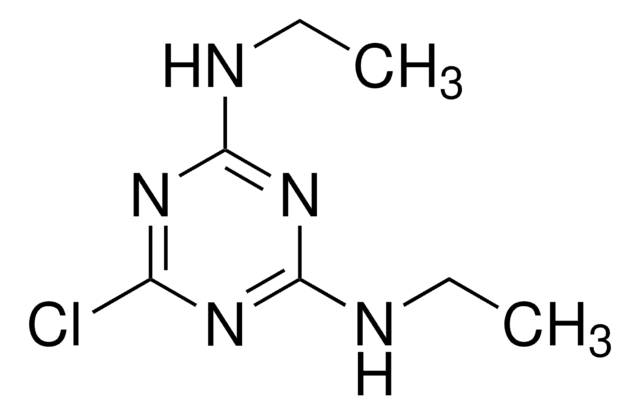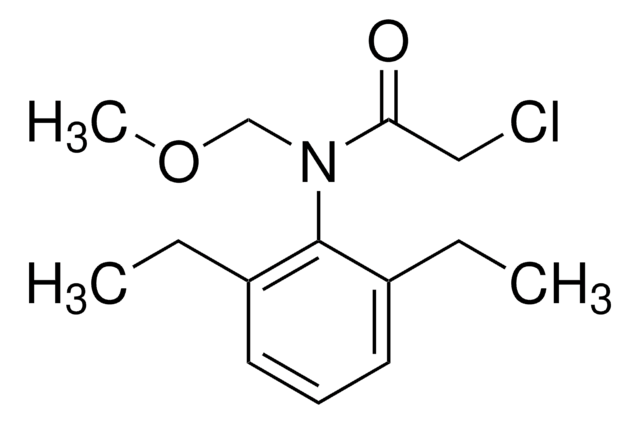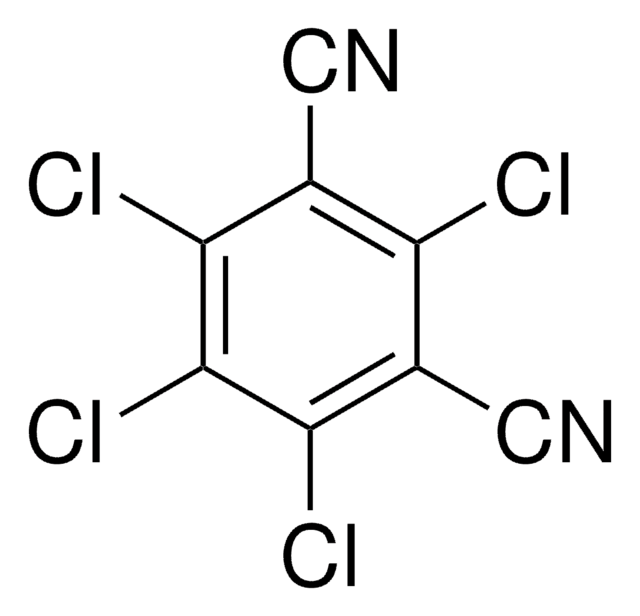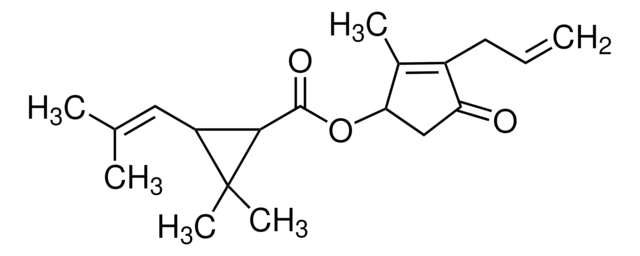45321
Ametryn
PESTANAL®, analytical standard
Sinonimo/i:
2-Ethylamino-4-isopropylamino-6-methylthio-1,3,5-triazine
About This Item
Prodotti consigliati
Grado
analytical standard
Livello qualitativo
Nome Commerciale
PESTANAL®
Durata
limited shelf life, expiry date on the label
tecniche
HPLC: suitable
gas chromatography (GC): suitable
applicazioni
agriculture
environmental
Formato
neat
Stringa SMILE
CCNc1nc(NC(C)C)nc(SC)n1
InChI
1S/C9H17N5S/c1-5-10-7-12-8(11-6(2)3)14-9(13-7)15-4/h6H,5H2,1-4H3,(H2,10,11,12,13,14)
RQVYBGPQFYCBGX-UHFFFAOYSA-N
Cerchi prodotti simili? Visita Guida al confronto tra prodotti
Categorie correlate
Applicazioni
Note legali
Avvertenze
Warning
Indicazioni di pericolo
Consigli di prudenza
Classi di pericolo
Acute Tox. 4 Oral - Aquatic Acute 1 - Aquatic Chronic 1
Codice della classe di stoccaggio
13 - Non Combustible Solids
Classe di pericolosità dell'acqua (WGK)
WGK 3
Punto d’infiammabilità (°F)
Not applicable
Punto d’infiammabilità (°C)
Not applicable
Dispositivi di protezione individuale
dust mask type N95 (US), Eyeshields, Gloves
Scegli una delle versioni più recenti:
Possiedi già questo prodotto?
I documenti relativi ai prodotti acquistati recentemente sono disponibili nell’Archivio dei documenti.
I clienti hanno visto anche
Il team dei nostri ricercatori vanta grande esperienza in tutte le aree della ricerca quali Life Science, scienza dei materiali, sintesi chimica, cromatografia, discipline analitiche, ecc..
Contatta l'Assistenza Tecnica.
